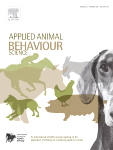Document type : Written answer published in Journal Officiel de la République Française
Authors: Question: Régis Juanico (Socialistes et apparentés - Loire). Answer: French Ministry of Agriculture and Food
Question: Mr Régis Juanico draws the attention of the Minister for Agriculture and Food to the need to protect the continued existence and development of local abattoirs. Local livestock farming provides an answer to both public expectations and the difficulties encountered by the long-distance supply sector in the face of market liberalisation. However, its development is currently held back by the lack of slaughtering and cutting facilities, especially as local abattoirs continue to disappear, replaced by large consortiums or large regional sites. Farmers in the areas affected by these closures are therefore unable to have their animals slaughtered or to guarantee acceptable transport conditions. The reappropriation of abattoirs by farmers allows them to support their animals and to guarantee that the latter are treated with dignity. Moreover, it ensures true traceability and re-establishes a bond of trust with consumers. The retention of local abattoirs is also essential for the reduction of vehicle movements, not only in terms of their impact on the environment but also of their financial costs, particularly for farmers and butchers. Keeping them local makes it possible to promote short supply chains and a circular economy to fit the public's desire for quality products, to preserve local jobs and thus to fight against rural flight. Faced with the obsolescence of a model that no longer guarantees the sustainability of local abattoirs, he would like to know what the Governmentnplans to do in order to retain local abattoirs and encourage their development.
Answer: The government is fully aware of the importance of local abattoirs, not least for their role in sustaining the vigour of the local economy in rural areas and in preserving the quality of meat produced across France, remaining closely tied to the distinctive characteristics of livestock production in the different regions. France has a great asset in its network of more than 1,000 abattoirs, which provides a local network and solutions that must be supported and modernised. There is no local meat without local abattoirs. Designations of origin, in particular, depend on it. This is why, within the framework of the agricultural section of the Recovery Plan, the abattoir modernisation plan ha been created to support projects that contribute to the improvement of food hygiene and animal protection practices on the one hand, and to the working conditions of operators on the other. This is also why this measure is largely conceived as operating at local level, both in terms of the resources allocated and the appraisal and selection of projects, with the goal of choosing projects that are consistent with local needs, particularly through the retention of a local network of abattoirs. Launched in mid-December 2020 with funds worth €115 million, this measure in the France Relance plan has already enabled 132 modernisation projects to be selected across the country. The sums awarded range from €3,000 to €2 million, with an average award of €500,000, and have benefited a large number of local abattoirs. This great success demonstrates the timely nature of the scheme. On condition that they allow the creation of innovative measures for animal welfare at slaughter while meeting a local need, and without causing an imbalance in the market, mobile abattoir projects are eligible for this fund. Similarly, in order to allow as many projects as possible that are exclusively linked to the improvement of animal welfare to be financed, the minimum sum applied for has been set at €10,000 per project. Thus, the "Le Bœuf éthique" project is the first mobile abattoir in France. Located in the Côte-d'Or, it was supported by the services of the Ministry of Agriculture and Food, not only at local level by assisting with the application's health and welfare statement, but also at national level , by facilitating the submission of its application to the France Relance fund. Partnership work has also been undertaken to draw up a guide intended to facilitate the installation of mobile slaughter units in compliance with health and animal welfare regulations. As provided for in the level playing field legislation for the agricultural and food sector, making healthy, sustainable food accessible to all and known as the EGALIM Act, an evaluation of these new slaughter systems was initiated at the beginning of July 2021 to be carried out over a period of one year. The report on this evaluation will be submitted to Parliament at the end of 2022. Support for farmers by maintaining provision of high-quality slaughter facilities that follow excellent operational procedures and are situated close to farms, is not only a public expectation but also a Government objective and a priority for the Ministry of Agriculture and Food.






